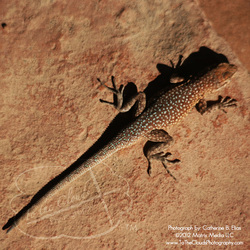As he walked along, he saw a man blind from birth. His disciples asked him, ‘Rabbi, who sinned, this man or his parents, that he was born blind?’ Jesus answered, ‘Neither this man nor his parents sinned; he was born blind so that God’s works might be revealed in him. We must work the works of him who sent me while it is day; night is coming when no one can work. As long as I am in the world, I am the light of the world.’ When he had said this, he spat on the ground and made mud with the saliva and spread the mud on the man’s eyes, saying to him, ‘Go, wash in the pool of Siloam’ (which means Sent). Then he went and washed and came back able to see. The neighbours and those who had seen him before as a beggar began to ask, ‘Is this not the man who used to sit and beg?’ Some were saying, ‘It is he.’ Others were saying, ‘No, but it is someone like him.’ He kept saying, ‘I am the man.’ But they kept asking him, ‘Then how were your eyes opened?’ He answered, ‘The man called Jesus made mud, spread it on my eyes, and said to me, “Go to Siloam and wash.” Then I went and washed and received my sight.’ They said to him, ‘Where is he?’ He said, ‘I do not know.’  According to a blog about idioms, "This toast may have been popular with the soldiers slogging through the muddy trenches of WWI, but it did not originate with them, as many believe. Some say that back in the day the phrase symbolised a plentiful crop when farmers used to raise a glass to the success of a good harvest. It was being bandied about in U.S. saloons as early as 1890 and was popular with the English fox hunting and race horse crowd before then. According to Morten’s List, the roots are found in the Gospel of John (Chapter 9) where there’s mention of the medicinal qualities of "mud in the eye." It's true; clay has been used historically for anti-inflammatory treatment, as an antiseptic, as a way to save one's complexion and as treatment for a variety of intestinal problems. Medicinal clay is available in health food stores. It comes as a powder that can be made into a drink or added to a bath. Health spas offer mud baths and mud wraps. I've tried to put myself in this nameless, blind man's shoes for a day or two now. It could be a great comedy. Are you the man born blind? Yes. No, you can't be. Yes, it's me. But really, how can you see now? This man told me to put mud on my eyes and wash and now I see. Where are his parents? Let's ask them. - Yes, it's him. Then he wasn't born blind. Yes he was. Who are you? I'm the same man you're talking about. No, it can't be. And yet it is. Here I am. I was blind and now I see. I wonder what the man would be thinking during the conversation about whether Jesus is a sinner. I wonder because I think to myself... way to focus on the wrong thing folks! And so the man jumps back in and tries to keep the conversation on point. Listen, I don't know from sinner or not but doesn't it seem plausible that God might be involved since I CAN SEE NOW! And for that, they threw him out of the church. Excommunicated. I too could get derailed here. I could focus on the wrong part of the story. My mind wanders to the historical roots of this text and how "being thrown out of the synagogue" is at the heart of John's gospel. The in-fighting, the divisions, the factions in this community are palpable. I could get derailed from the miracle of the blind man receiving his site when I realize that this text has all kinds of timing issues. The story of the man who actually encountered Jesus would've happened long before the text was written. And the healing would've then happened long before anyone was being "thrown out of the community." And so I could focus on the historicity of the text and talk about how the writers of the gospels used stories to make their points way after the fact. (See Martyn or Raymond Brown) But then I too begin to hear the blind man saying to me - Hey, look. I can see now. Does it really matter if the gospels were written years after Jesus died. Does it really matter that this chapter helps prove the gospel texts are better classified as historical fiction? Can't you see? I can see now. I met this man and he told me to put mud on my eyes and then wash. And now I can see.  This man's story ends with Jesus having a candid conversation with him about belief. Jesus says to him, "I came into this world for judgement so that those who do not see may see, and those who do see may become blind." In the same way the Pharisees were taken aback by this judgment, it stops me in my tracks. Am I one of the ones who can see? Or am I one of the blind ones? What is it that I think I can "see" or understand? Where do I have clarity? And then where is this opposite true? Where is my confusion? my lack of understanding, my questions, my poor "sight?" Does my certainty cloud my vision? And does that kind of certainty qualify as "sin?" Because the passage begins wondering if this man sinned or if his parents sinned. And the Pharisees think Jesus is a sinner. A sinner - meaning one who misses the mark. I miss the mark all the time - and when I am so certain that I ignore or dismiss other ideas and other people, I have missed the mark. And with my new recognition of my own blindness, I sense the name man coming to stand beside me - with his fresh clarity. And when I get quiet, he says to me, "Here's mud in your eye." I can only hope.
2 Comments
|
Search this blog for a specific text or story:
I am grateful for
|

This work is licensed under a Creative Commons Attribution-NonCommercial-ShareAlike 3.0 Unported License.
